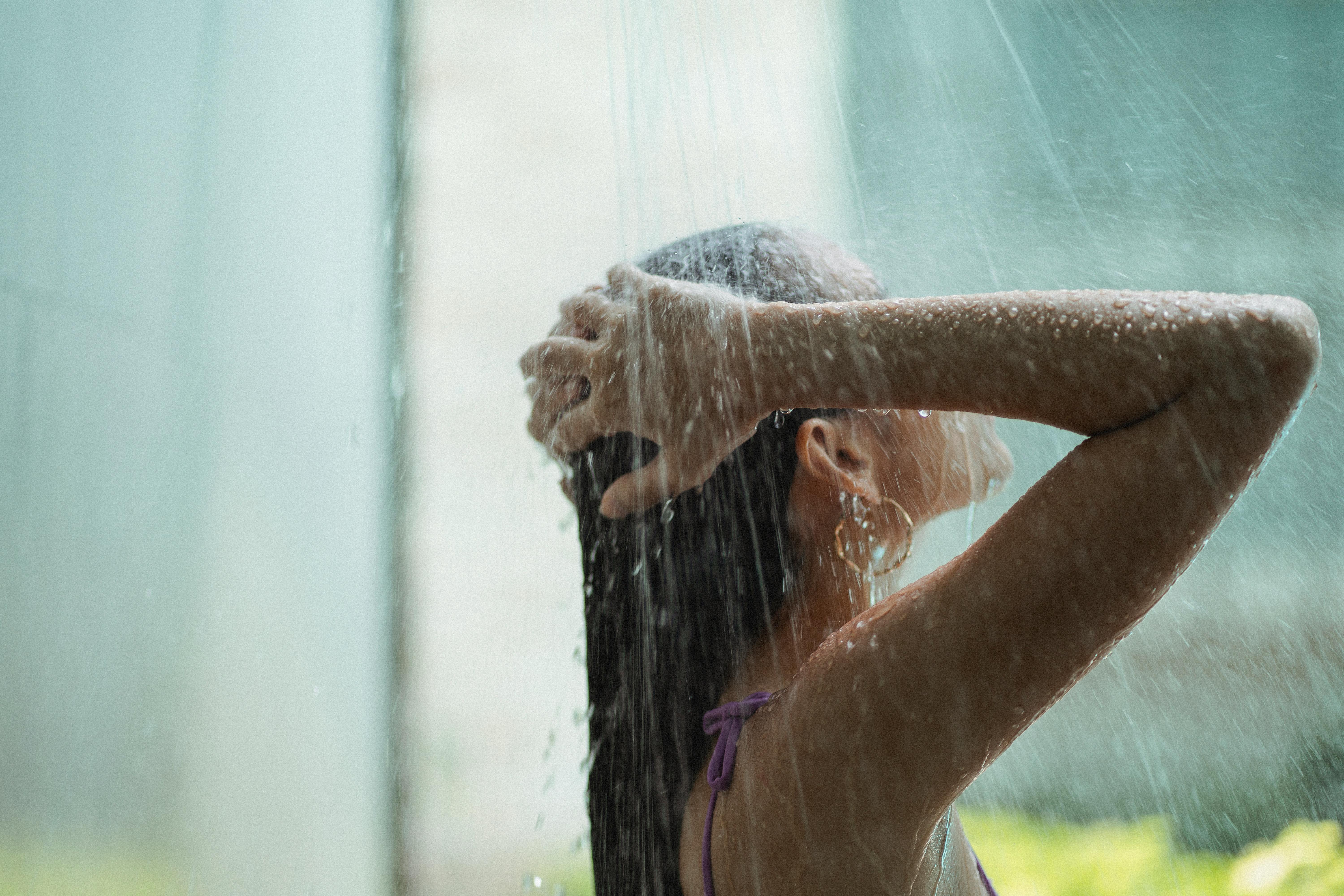Washing your hair with distilled water can be a great way to keep your hair clean and healthy. Distilled water is free of the chemicals, minerals, and contaminants that can be found in tap water. It also doesn’t contain any chlorine, which can damage and dry out your hair. By using distilled water for your hair washing routine, you can help protect your scalp and hair from the negative effects of tap water. In this article, we’ll discuss the benefits of using distilled water for washing your hair and provide some useful tips on how to do it.The benefits of washing your hair with distilled water are numerous. First and foremost, distilled water is free from any impurities or chemicals that may be present in regular tap water. This helps to eliminate the risk of any build-up on the hair shaft and scalp, which can lead to dryness, split ends, and dandruff. Distilled water can also help to prevent hair loss due to its ability to remove harmful minerals from the hair follicles. Additionally, it helps to keep the pH balance of your scalp in check, which is important for healthy hair growth. Finally, using distilled water for your hair washing routine can also help to reduce frizz and protect against damage caused by heat styling tools.
What Is Distilled Water?
Distilled water is water that has been purified by a process of distillation. This involves boiling the water and condensing the steam into a separate container, leaving behind any impurities or contaminants that were present in the original water. Distilled water is often used in scientific experiments and medical procedures, as it is free from any bacteria, minerals, or other pollutants that may be present in normal tap water. It is also sometimes used for drinking, as it lacks the taste of chlorine or other chemicals found in tap water.
Distillation is a reliable way to purify water, although it does not remove all impurities. For example, some volatile organic compounds (VOCs) are not removed during the distillation process and can still be present in the resulting distilled water. Therefore, it is important to use a high-quality filter or carbon block filter when collecting distilled water for drinking purposes.
How to Wash Your Hair With Distilled Water
Distilled water is a great choice for cleansing your hair and scalp. It is free of minerals and contaminants that can be found in tap water, and it can help reduce the amount of buildup on your scalp and hair. Washing your hair with distilled water can leave it feeling clean, soft, and healthy. Here are some tips on how to wash your hair with distilled water:
First, you’ll need to get a container of distilled water. You can usually find this at any grocery store or pharmacy. Once you have the distilled water, fill a bucket or basin with the water and set it aside.
Next, wet your hair thoroughly with the distilled water. Make sure to rinse all of the shampoo and conditioner out of your hair before moving onto the next step.
After rinsing out the shampoo and conditioner, use a clarifying shampoo to help remove any build up on your scalp or strands. Clarifying shampoos are designed to deep clean your scalp while removing excess dirt and oil that can build up over time.
<
Is Distilled Water Safe for Hair?
Distilled water is considered safe for hair because it contains no minerals or additives. It is created by boiling water and then condensing the steam into a clean container. This process removes contaminants, such as chlorine and heavy metals, from the water. Distilled water is also free of bacteria, viruses, and other microorganisms. Because of these qualities, many people choose to use distilled water for their hair care needs.
Using distilled water on your hair can help to reduce buildup from hard water minerals and other impurities that can leave hair feeling dry and lifeless. It can also help to reduce frizziness and improve manageability by removing excess oil and product residue that can weigh down locks. When using distilled water with styling products such as mousse or gel, it helps to evenly distribute the product throughout the hair shaft, resulting in more even coverage.
Distilled water is also beneficial for helping to keep color-treated hair vibrant longer as it prevents fading due to mineral deposits in hard water. This can be especially useful for those who have dyed their hair a light color or who use a lot of styling products that contain alcohol which can
How to Make Distilled Water at Home
Distilled water is an essential element in many industries, such as pharmaceutical and food processing. It is also used in laboratories and for drinking water. Distilled water is created by condensing the steam from boiling water, resulting in a pure form of H2O, free from contaminants. Making distilled water at home is a simple process that can be done with a few items found around the house. Here are the steps you need to follow to make distilled water at home:
First, you’ll need to gather some supplies. You will need a large pot, a glass bowl or container, ice cubes or cold packs and some clean drinking straws. Make sure that the bowl or container you use is heat-resistant and can fit inside the pot.
Next, fill the pot with enough water so that when you place the bowl inside it, it won’t be completely submerged. Put a lid on the pot and bring the water to a boil over medium-high heat.
Once the water has boiled, place your bowl inside and reduce

Does Washing Hair with Distilled Water Help Prevent Damage?
Many people are interested in finding ways to protect their hair from damage. One option that has been gaining traction is washing hair with distilled water. Distilled water is free of minerals, chlorine, and other impurities, making it a great choice for those who want to keep their hair healthy and strong.
Using distilled water to wash your hair can help prevent damage in a few different ways. First, the lack of minerals and chlorine in the water means that it won’t strip away natural oils from the scalp or leave behind residue that can clog the pores. This can help keep your scalp healthy and free of irritation or dryness that can lead to damage.
Second, washing with distilled water can help protect color-treated hair from fading or becoming discolored due to exposure to minerals and chlorine in regular tap water. This can help keep your hair looking its best for longer periods of time.
Third, washing with distilled water can also help protect against split ends and other types of breakage due to its lack of impurities. By removing these impurities, you are helping reduce
Potential Risks of Washing Your Hair With Distilled Water
Washing your hair with distilled water may pose some risks, as it lacks many of the minerals and nutrients found in regular tap water. Because it is highly purified, it can strip away natural oils from the scalp and hair, making it more prone to breakage and damage. Additionally, because it does not contain any minerals or chlorine, it may not be suitable for long-term use as a hair-washing solution.
Another potential risk of washing your hair with distilled water is that it can disrupt the natural pH balance of the scalp. This could lead to dryness and itching, as well as an increase in dandruff and other scalp problems. Additionally, if you are using conditioner or other products on your hair after washing with distilled water, they may not be able to penetrate the hair shaft due to its lack of minerals.
Finally, because distilled water has been stripped of most contaminants, there is a risk that some harmful bacteria could be present in the water. If you are using well water for washing your hair with distilled water, there is
How to Choose the Right Type of Water for Your Hair
Having the right kind of water for your hair can make a big difference in its overall health and appearance. The type of water you use can affect everything from the texture and shine of your hair, to how well it holds styling products. There are a few different types of water available, so it’s important to know which one is best for your hair.
Tap water is the most widely available type of water, and it can be used for both shampooing and conditioning your hair. However, tap water often has high levels of chlorine and other minerals that can strip away natural oils from your strands and leave them dry and brittle. If you choose to use tap water on your hair, make sure you rinse it out thoroughly to remove any residue that could cause damage.
Distilled water is free from chemicals and other contaminants, making it an excellent choice for anyone with sensitive or color-treated hair. It also helps keep styling products in place longer so they last throughout the day. However, distilled water can be expensive compared to regular tap water, so it may not be an

Conclusion
Overall, washing your hair with distilled water is not a bad idea and it can be beneficial to those who have scalp or hair that is sensitive to minerals found in tap water. With distilled water, you will avoid any residue buildup that can occur from hard water. It also helps to keep your scalp and hair hydrated which is important for healthy hair growth. Distilled water also helps to remove excess oil and dirt from the hair more effectively than regular tap water.
However, it is important to remember that distilled water should not replace regular haircare products like shampoos and conditioners. Using just distilled water will strip your scalp and hair of essential oils and nutrients that are needed for a healthy scalp and hair. It is best to use both distilled water and regular haircare products in order to achieve the best results for your scalp and hair health.

